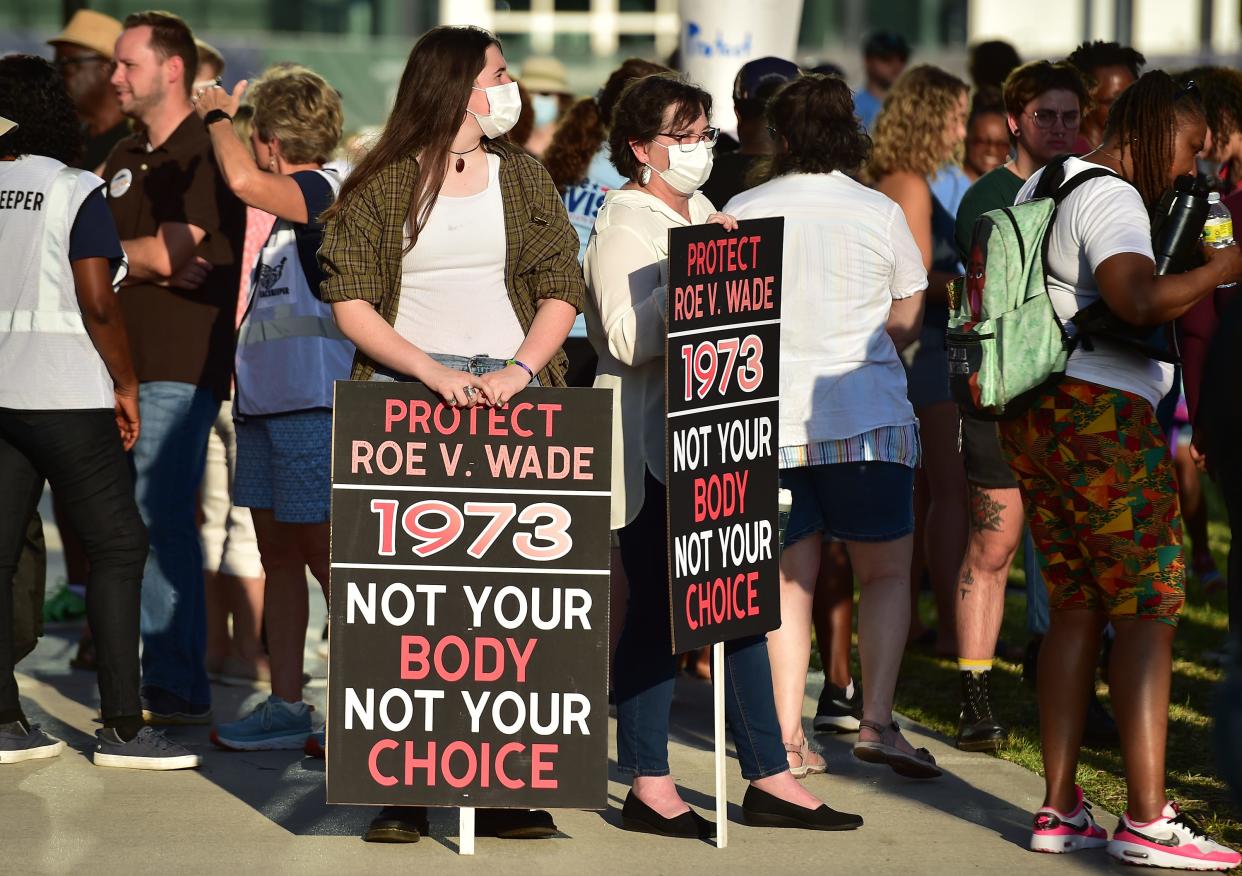Banks Vadeboncoeur: Abortion must be truly accessible, not just technically lawful

One of the greatest honors — and most important responsibilities — a woman can have is to give birth to a child and raise the baby to become an independent person. Motherhood knits together a person's earlier successes, disappointments and trials to mold the woman she becomes. Being a parent should be a conscious choice, not an afterthought. It is a foundation around which other passions revolve.
If a mother is disadvantaged by her socioeconomic status, her children are also burdened. The children's father is also disadvantaged, as are her parents, who may be called upon for assistance. Her network of friends is impacted if her mental health deteriorates and she needs to reach out. Supporting women, particularly mothers, is the most sensible thing we can do as a nation to repair our communities and restore a sense of health and solidarity.
We can provide this support by providing access to safe abortion and resources for preventative care.
Roe v. Wade was a historic 1973 Supreme Court decision that established a constitutional right to abortion in the United States. The issue before the court was whether the Constitution guarantees a woman's right to terminate her pregnancy through abortion. Justice Harry Blackmun, speaking for the 7-2 majority, determined that it did.
However, that protection had to be balanced against the government's obligations to preserve women's health and "the potential of human life." The conservative leaning court held that states may restrict or ban abortions in the third trimester as the fetus approaches the point where it could live outside the womb.
In the decades since Roe v. Wade, legal abortion, along with legal birth control, has had a dramatic and positive effect on the Women’s Rights Movement and young women’s access to reproductive care. Women are empowered by reproductive choice because they have control over their bodies. Additionally, access to safe, legal abortions minimizes the risk of maternal harm and death as a result of unsafe, back-alley abortions.
While it is vital that we acknowledge such accomplishments, we have also directly witnessed how legality does not benefit everyone equally. It hasn't guaranteed that everybody who desires an abortion is actually able to get one.
Clinics have closed in huge numbers around the country, particularly in recent years, due to exploitative, politically driven state statutes. These statutes force many patients seeking abortion treatment to travel significant distances (often over state boundaries) and pay excessive fees to access abortion-related care.

Countless other state laws have eroded abortion care and options, ranging from laws that primarily impact young people and hinder our decisions to laws that force patients to justify why they had an abortion. Other laws prohibit insurance companies from covering abortions, essentially preventing those who struggle financially from having access to them. This group almost universally includes mostly women of color, immigrants and young adults.
In recent years, such laws have led to deep ideological divides and ignited heated disputes between political parties. On May 2, Politico released a leaked draft of a Supreme Court judgment that would repeal the abortion rights established by Roe v. Wade. While SCOTUS has been troubled by leaks in the past, this was unprecedented. It was the first draft majority opinion to be leaked.
“Our bodies, our rights,” chanted high school student, Nikki Walton, who displayed the phrase on a sign that she created for the recent “People’s Abortion Rights Rally” at the Duval County Courthouse. Walton, along with countless other young people, fears for the health of our generation if the law is to be overturned. “Abortion is part of our ongoing social progress toward equality, both for women and society as a whole,” she said.
The freedom to choose an abortion is critical to a woman's ability to determine whether, when and with whom she wants to build a family. Several studies show that being unable to access or afford abortion care pushes pregnant women deeper into poverty, endangering their health as well as the health of their present and future children.
Teen pregnancy reduces their chances of graduating from high school. Boys born to teen moms are more likely to wind up in prison, whereas girls born to teen moms are more likely to become teen mothers as well. A single teen pregnancy can set off a generations-long cycle.
It is important to note that when teenagers have unwanted pregnancies, they are not only more liable to incur psychological impacts, but the child may also suffer as a result of being “unwanted." Finally, abortion limitations put women in a desperate situation, and as a result, some may attempt abortions using dangerous methods.
To conclude, we simply don't know what other people are going through and therefore, we shouldn't make decisions for them. Abortion should continue to be legal and individuals who want them should be able to get the procedure in their respective communities. In addition to safe abortion access, everyone needs proper sex education, contraceptives and maternity care.
When it comes to abortions, women already face disproportionately large challenges. Abortion must be truly accessible, not just technically lawful, if the genders — and all individuals — are to be treated equally.
Banks Vadeboncoeur, a freshman at Ponte Vedra High School, loves to write and hopes to have a career in journalism.
This guest column is the opinion of the author and does not necessarily represent the views of the Times-Union. We welcome a diversity of opinions.
This article originally appeared on Florida Times-Union: Guest column: Safe abortion must remain accessible, not just lawful

